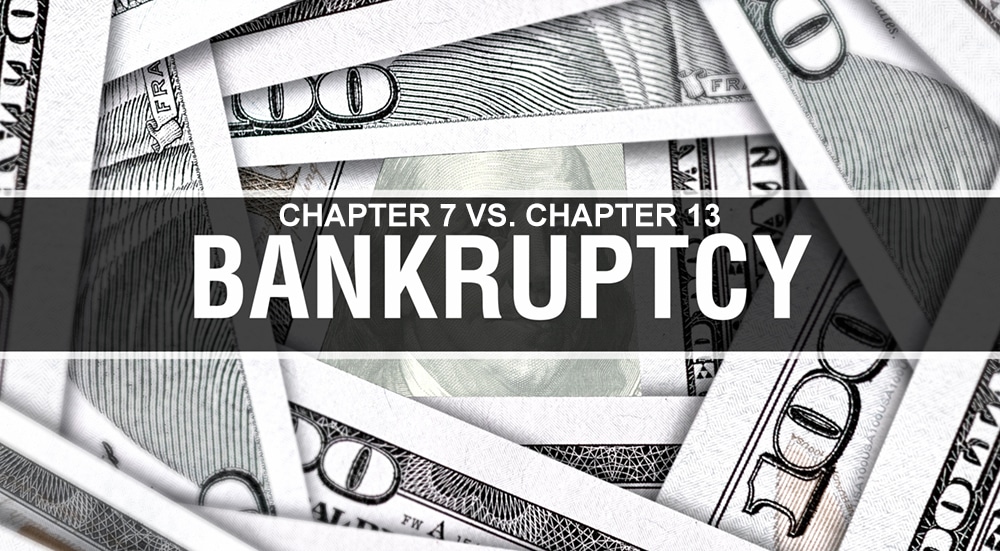The differences between Chapter 7 bankruptcy and Chapter 13 may not be all that apparent to those who don’t have a firm understanding of what bankruptcy is, but they are significant. Knowing the distinctions between the two can mean the difference between your fresh start and a truly complicated mess.
Chapter 7 Bankruptcy
If you’ve always believed there was only one type of bankruptcy, and it offered a totally clean slate, you we’re likely thinking of Chapter 7 bankruptcy. To file for Chapter 7 bankruptcy , a judge has to swoop in and determine if your income is not suitable enough to support a repayment plan. Your assets, including your home and vehicles, are surrendered and sold to help pay off your unsecured debts, and any amount leftover is then wiped away with the exception of student loans, child support, and other government debts. In order to qualify for Chapter 7 bankruptcy, a filer must earn less in income than the median income of their state. However, the entire process can typically be completed in only a few months. Though a Chapter 7 bankruptcy will persist as a blemish on your credit report for up to 10 years, it is the best way to wipe your hands clean of almost all financial obligations with minimal inconvenience.
Chapter 13 Bankruptcy
Depending on your income, this may be the only type of bankruptcy you’re able to file, but the good new is Chapter 13 is almost everyone’s preferred type of bankruptcy. It allows debtors to maintain possession of their assets by agreeing to a reasonable 3 to 5 year repayment plan based on their current income and quantity of debt, and will even forgive your remaining debt once the agreed upon time frame is met. In addition to avoiding the liquidation of all your assets, Chapter 13 bankruptcy will only stay on your credit report for up to seven years! Sure you’re agreeing to keep paying off your debts versus just tossing them aside like you would with a Chapter 7, but the long-term rewards are much greater.
Which Should You File?
There are benefits and consequences on both sides, and you may not have as much of a choice as you think when it comes to choosing which way you’d like to file. The only way to know for sure you’re making the right decision for your family is to put your trust in knowledgeable, caring bankruptcy attorneys who want to help you succeed, like ours at Church and Korhonen, PC. Reach out to one of our exceptional bankruptcy lawyers, today, to learn more. Call Church and Korhonen, PC, toll-free at 1.800.758.5611 or simply fill out the form in the sidebar to begin taking steps to a more sound financial future, greater peace of mind and a fresh start.

